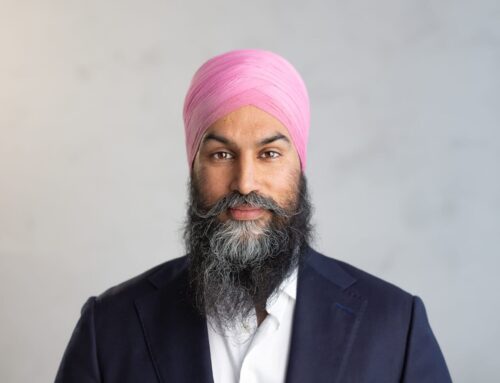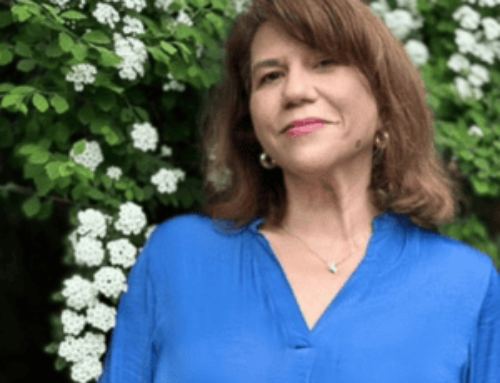With Amanda Arella at YWCA Canada. Those who are young face elevated risks of gendered digital harm. Statistics Canada found that, among those aged 18 to 29 years, young women were more often the target of online abuse, with a prevalence almost double the rate of young men. The gender difference was especially pronounced for receiving unwanted sexually suggestive or explicit material, where young women were almost three times as likely to be targeted as young men.
YWCA Canada found that 44% of women and gender-diverse people aged 16 to 30 report having been personally targeted by hate speech online. Those most targeted include people with disabilities, 2SLGBTQIA+ people, Indigenous people, and Black people.
We’re at the end of our series delving into gendered digital hate and harassment with leading experts and content creators. We’ve been talking about the problem and what we can do to change it. We’ve offered practical tips to help you in your digital life, and we’ve talked about what it means to “take back the tech” for all of us.
Our guest Amanda Arella is the Director of Public Policy, Advocacy, and Strategic Communications at YWCA Canada. Amanda is a lawyer, strategic thinker, and passionate advocate for gender equity. She leads advocacy for feminist regulatory responses to gendered online hate, grounded in the recommendations of youth survivors of online hate and technology-facilitated violence. Prior to joining YWCA Canada, Amanda honed her advocacy skills as a litigator at a national law firm, with a focus on administrative, privacy, and health law.
A note about content: this episode addresses gender-based violence.
Transcript
00:00:02 Amanda
One quote that really stuck with me from one of our focus group participants was when she said, “Simply existing online as a woman, trans or gender-diverse person is seen as an invitation to hate.”
00:00:14 Andrea
Young women and gender-diverse people face the highest rates of gendered digital hate and abuse.
What solutions do they want?
I’m Andrea Gunraj from the Canadian Women’s Foundation.
Welcome to Alright, Now What? a podcast from the Canadian Women’s Foundation. We put an intersectional feminist lens on stories that make you wonder, “why is this still happening?” We explore systemic routes and strategies for change that will move us closer to the goal of gender justice.
The work of the Canadian Women’s Foundation and our partners takes place on traditional First Nations, Métis, and Inuit territories. We are grateful for the opportunity to meet and work on this land. However, we recognize that land acknowledgements are not enough. We need to pursue truth, reconciliation, decolonization, and allyship in an ongoing effort to make right with all our relations.
00:01:10 Andrea
Whether you’re on social media, streaming platforms, dating, messaging and meeting apps, or on game sites, if you’re a woman, girl, or Two Spirit, trans, or non-binary person, you’re at greater risk of hate, harassment, and violence.
Statistics Canada found that, among those aged 18 to 29 years, young women were more often the target of online abuse, with a prevalence almost double the rate of young men. The gender difference was especially pronounced for receiving unwanted sexually suggestive or explicit material, where young women were almost three times as likely to be targeted as young men.
YWCA Canada found that 44% of women and gender-diverse people aged 16 to 30 report having been personally targeted by hate speech online. Those most targeted include people with disabilities, 2SLGBTQIA+ people, Indigenous people, and Black people.
We’re at the end of our series delving into gendered digital hate and harassment with leading experts and content creators. We’ve been talking about the problem and what we can do to change it. We’ve offered practical tips to help you in your digital life, and we’ve talked about what it means to “take back the tech” for all of us.
Our guest Amanda Arella is Director of Public Policy, Advocacy, and Strategic Communications at YWCA Canada. She leads advocacy for feminist regulatory responses to gendered online hate, grounded in the recommendations of youth survivors of online hate and technology-facilitated violence. Prior to joining YWCA Canada, Amanda honed her advocacy skills as a litigator at a national law firm, with a focus on administrative, privacy, and health law.
A note about content: this episode addresses gender-based violence.
00:03:05 Amanda
I’m joining you today from Treaty 13 territory in Tkaronto, colonially known as Toronto – the land of the Mississaugas of the Credit, the Anishinaabe, the Chippewa, the Haudenosaunee, and the Wendat peoples. I am the director of public policy, advocacy, and strategic communications at YWCA Canada, the oldest and largest gender equity organization in the country.
We represent member associations – local YWCAs working in 330 communities across nine provinces and two territories, and we’ve been doing this work for over 150 years. And so, we advance gender equity through building affordable housing, through fighting gender-based violence, and through advocating for workplace equity. I have the honour of representing our organization and our member associations in external conversations with our partners, with government, and with the public.
And I am also a lawyer, and so I’m very passionate in my volunteer work about ensuring access to justice for members of equity-deserving groups. And maybe a fun anecdote about me is that like many people, I was home during the pandemic, and I got two cats. They often love to participate in these sorts of conversation and interviews, so they may be coming across screen at any moment.
00:04:19 Andrea
What’s the Block Hate project about? What were your most important learnings and findings?
00:04:24 Amanda
The full title is Block Hate: Building Resilience against Online Hate Speech. This is a four-year research and knowledge mobilization project funded by Public Safety Canada’s Community Resilience Fund. The project works with a variety of stakeholders to co-create concrete solutions to online hate speech and technology-facilitated violence in communities across Canada.
And the overall objective of the project is to improve community resilience by developing interventions to prevent, address, and report online hate speech through community-based research. And really, the project focuses on working with young women and gender-diverse youth, aged 14 to 30. And one thing in addition to the work that I’ve discussed around YWCA Canada, we do a lot of work to build young leaders and over the last decade that has taken on the role of also supporting youth in being as safe as possible online.
One of the things unfortunately that we have seen as we work to build young people to train them to talk about issues that they’re passionate about in their communities is that they would get online, be very eager to have these conversations, get in front of the issues that they care about and they were faced with just overwhelming amounts of threats of violence, hate speech, and just endless amounts of hate.
While we adapted our programming in supporting youth as they get into these spaces, we also realized that we had to engage with the other side of the equation and really if we wanted to truly create online spaces where girls, women, and gender-diverse people can fully and safely express their views, we had to change the digital spaces themselves.
One of the things in Block Hate that we were interested in learning was to get a sort of snapshot of what the experience of gendered online hate is for young women and gender-diverse youth in Canada. As part of this, we commissioned polling data. We also convened focus groups with youth to speak to them about their experiences with online hate and concrete solutions that they would suggest. And really centering the wisdom and solutions of young people was really an important tenant to us in this project.
A part of the work that we did is that we trained eight fellows – so queer, Two Spirit, trans, Black, Indigenous, and people of color staff and volunteers from local YWCAs – around online hate speech, building community resilience, bystander training. And we also trained them in participatory action research models. And then they became the leaders who convened focus groups of youth survivors of online hate across the country.
We thought this was a really successful model because we found that focus group participants were much more willing to share their thoughts and experience when they were speaking to their peers, rather than other adults, and it led to really rich insights into how to take action on gendered online hate.
Maybe I’ll start with the bad. Unfortunately, the state of online hate in Canada is very troubling. Across the country, 44% of women and gender-diverse youth have report being personally targeted by online. And 82 have personally witnessed online hate speech. What we’re also seeing is that for the folks who are personally targeted by online hate, it’s not a one-off situation. It’s something that they report happening monthly and even daily as they engage in digital spaces.
And unfortunately, we’re seeing that people from equity-deserving groups are much, much more likely to be targeted online. People with a disability, Indigenous peoples, Black people, and the 2SLGBTQIA+ community are most likely to experience online hate in Canada. It unfortunately also came as no surprise to us that this hate takes the form of sexist and misogynistic comments. And so, respondents reported experiencing threats of violence, including physical and sexual violence, stocking behaviors and receiving comments encouraging self-harm.
It was really evident to us from this polling data and from our focus groups that technology-facilitated violence and online hate is a new modality of the existing epidemic of gender-based violence. And one quote that really stuck with me from one of our focus group participants was when she said, “Simply existing online as a woman, trans, or gender-diverse person is seen as an invitation to hate.”
Despite the overwhelming problem of online hate, participants were also really clear in what they articulated as solutions. And so, they stated that there needs to be coordinated collective action by multiple sectors and stakeholders to effectively engage with digital hate. The youth that we consulted highlighted that there is a role for government regulation of online spaces, but there’s also a role for social media platforms and for others in this space to develop processes that center accountability and support for survivors of hate.
And finally, one of the most important learnings for us was that the communities most targeted by online hate need to be involved in shaping these responses in order to create real change and must be consulted by government and platforms, as they’re addressing this issue.
00:09:23 Andrea
Did anything surprise you about the research?
00:09:25 Amanda
I was surprised and impressed and ultimately felt very hopeful to learn that the youth that we consulted with understood themselves as very powerful actors to change the landscape of online hate. They are engaging on online platforms as ways to express themselves, to share ideas, to participate in public conversation. And they really understand, ultimately, that social media platforms rely on them being in these spaces to be successful and so youth were very savvy about how they could leverage their power collectively to advocate for change and to put pressure on government and social media to create the kinds of accountability mechanisms that they wanted to see.
00:10:04 Andrea
What can those at higher risk do to protect themselves, push for change and speak out, and deal with algorithms and a lack of accountability and resources?
00:10:14 Amanda
So again, the tips and kind of strategies that I have to offer are ones that come directly from the youth that we consulted with, and they identified a number of avenues both for personal and individual action to protect themselves and also to hold platforms and government accountable, and these largely fell under four buckets.
So, the first is advocacy and awareness raising. And really identify that digital literacy training, safety and resilience training, online bystander intervention trainings, are all really good first steps for folks who want to not only engage in protecting themselves, but also protecting others that they you know are in community with on online spaces from the kinds of attacks and online hate that we see. I think we’ll talk about this a little later, but there are a number of nonprofits in Canada who are doing fantastic work in developing resources that are a good first step in getting some of these trainings.
The second was accountability. So, we know online social platforms can be part of the solution, but right now it’s very difficult to understand the actions that they’re taking when they’re confronted with, you know, reporting or flagging hate on their platforms. And so, youth wanted to see online platforms understanding themselves as being part of the solution and not waiting on government to regulate this issue, but to be really proactive in building a clear, transparent practice to intervene when there are situations of online hate and perhaps adapt to prevent those situations from occurring in the first place.
The third thing that youth are calling for is support. So better resource allocation for safer spaces and for supportive interventions to address online hate. And that comes in the form of easier access to funds for community organizations who are doing this work, more resources allocated to this issue by online platforms, specifically within community safety and resilience building, and more support for the development of community-centered online platforms.
The last piece was regulation. And so, the youth were very supportive of legislation to ensure greater accountability around online hate. They understand government as also having a role in promoting online safety and addressing hate speech through a human rights-based approach. And so, this is something that they’re really looking towards elected officials to implement.
00:12:26 Andrea
What services and supports would you recommend for listeners?
00:12:29 Amanda
So, as a starting point, I really recommend taking the time to read YWCA Canada’s full Block Hate national report. It’s called Centering Survivors and Taking Action on Gendered Online Hate. We also have the full results of our national polling data. Both are available in English and French online on our website ywcacanada.ca
I also really recommend looking at some of our partners’ resources. So, Women Shelters Canada’s project Tech Safety Canada, as well as LEAF – Women’s Legal Education and Action Fund, have developed some truly fantastic resources and toolkits around tech-facilitated gender-based violence – how individuals can sort of understand their own technology and their own safety online, and also understanding some of the broader policy and legal implications of this issue.
And finally, YWCA Canada is continuing our work on our Block Hate project, and one of the things that’s upcoming is a three-day digital resilience and literacy training for young women and gender-diverse youth aged 16 to 30, that would be happening sometime in 2024 and so I encourage everyone who is interested in following us on social media, where we’ll be announcing next steps on this.
00:13:38 Andrea
Visit ywcacanada.ca to read #Block Hate: Centering Survivors and Taking Action on Gendered Online Hate in Canada.
Get the facts from gendered digital hate, harassment, and abuse by visiting our fact page on canadianwomen.org.
While you’re there, read about our new Feminist Creator Prize to uplift feminist digital creators advocating for gender justice, safety, and freedom from harm.
Did this episode help you? Did you learn anything new? We want to know. Please visit this episode’s show notes to fill out our brief listener survey. You’ll be entered to win a special prize pack.
This series of podcast episodes has been made possible in part by the Government of Canada.
Please listen, subscribe, rate, and review this podcast. If you appreciate this content, please consider becoming a monthly donor to the Canadian Women’s Foundation. People like you will make the goal of gender justice a reality. Visit canadianwomen.org to give today and thank you for your tireless support.






